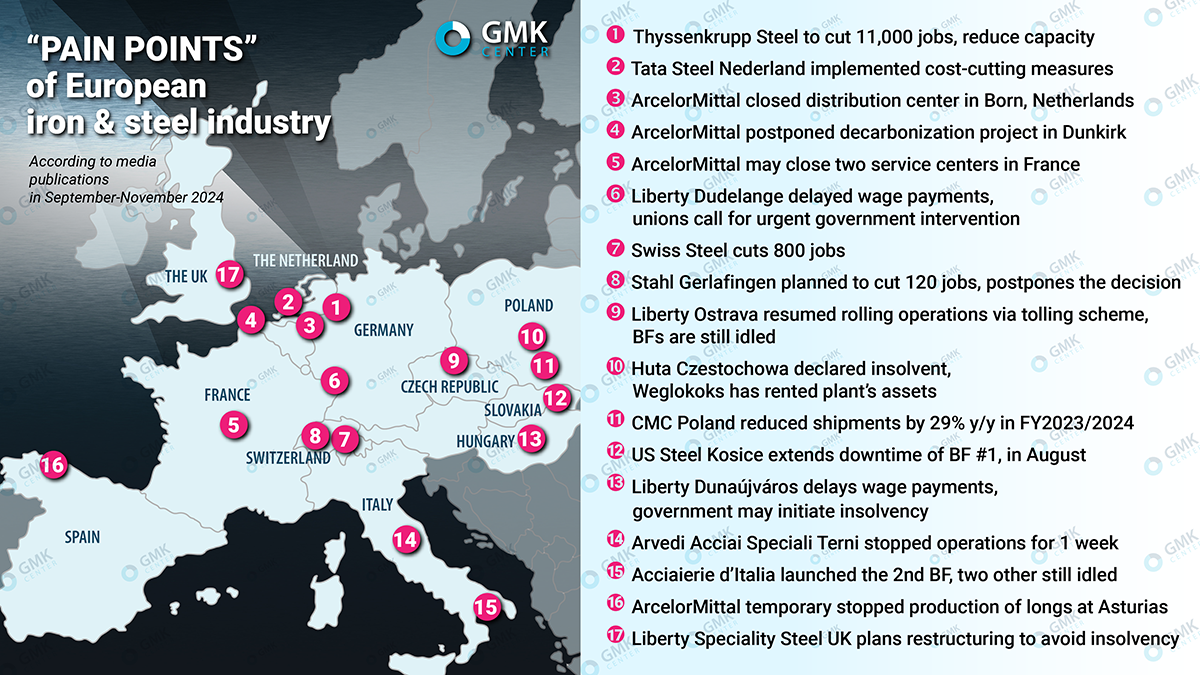Posted on 03 Dec 2024

Steel prices on the European market have been at rock bottom for the third month. The influx of imports in October has overstocked warehouses, and buyers are in no hurry to resume purchases. Incentives in China have increased prices globally, but not in Europe. The margins of steel producers are critical. We are seeing a sharp deterioration in the financial condition of steel companies. Those that previously had difficulties are now on the verge of insolvency.
Steel companies respond to the challenges by reducing output (a striking example is CMC Poland, as well as other companies), idle capacity (US Steel Kosice, Liberty Ostrava, Acciaierie d’Italia, ArcelorMittal Asturias, Arvedi AST), cut off workers (Thyssenkrupp Steel, Swiss Steel, Stahl Gerlafingen), and other cost reductions (Tata Steel Nederland). Other steelmakers are probably also taking cost cutting measures, but without announcements in media.
Statements of capacities stoppages haven`t been massive yet, there were only several. Steelmakers probably believe in a quick recovery of prices against the backdrop of uncompetitive imports. But if the situation continues for another month, we will see a massive downtime of capacities and a negative impact on the labor market. Some companies delay wage payments (Liberty Dudelange, Liberty Dunaújváros), have been declared insolvent or are on the verge (Huta Czestochowa, Liberty Specialty Steel UK).
It is obvious that in such difficult market conditions, European steelmakers will begin to sag in investments. There are delays in investment projects, even in the area of decarbonization (ArcelorMittal Dunkirk, ArcelorMittal Asturias (Gijon).
The European market’s safeguard system is imperfect, despite several tightening measures introduced since July 2024. The influx of imports occurs in the first month of the quotas, which kills the market for the next two months. Therefore, the European steel community demands new broad protection measures from policymakers.
It is also a challenging time for EU exports. European businesses fear new trade barriers in US policy after Trump’s election. This could directly affect steel and steel-consuming industries.
That`s why we see number of policy initiatives from Eurofer, unions, other organizations, steelmakers `chairs with calls to European Commission and local governments to take urgent anti-crisis measures.
Source:GMK Center